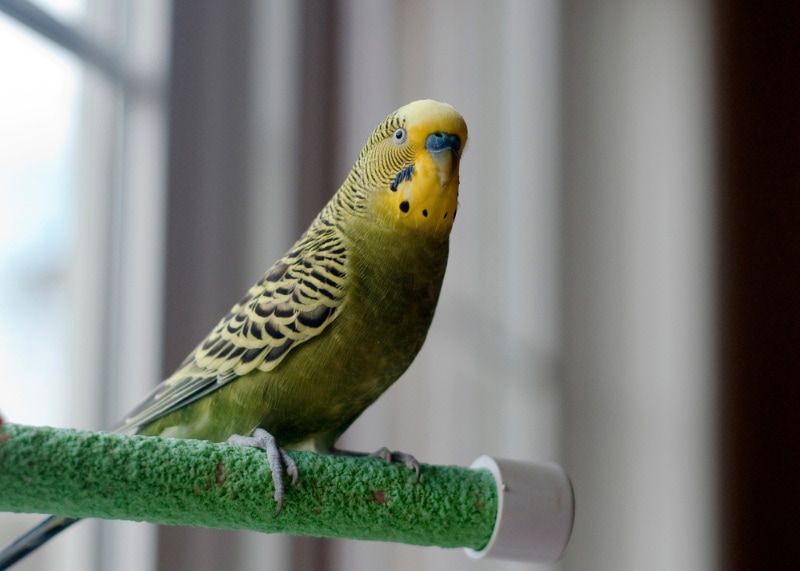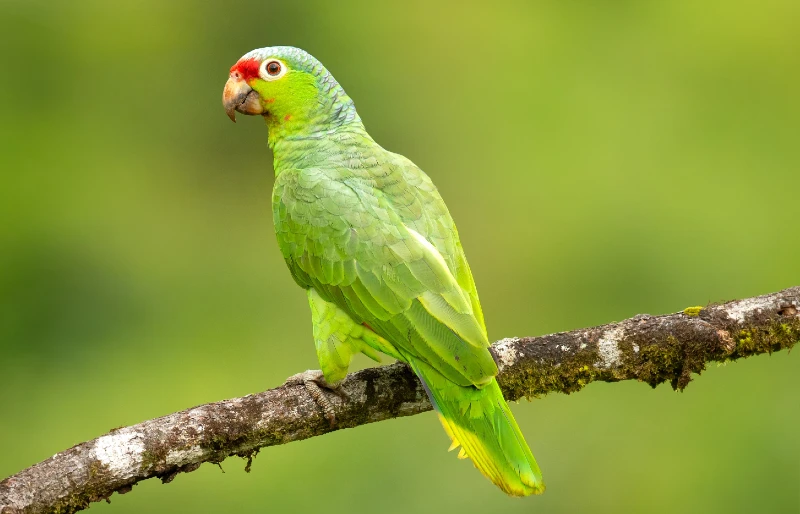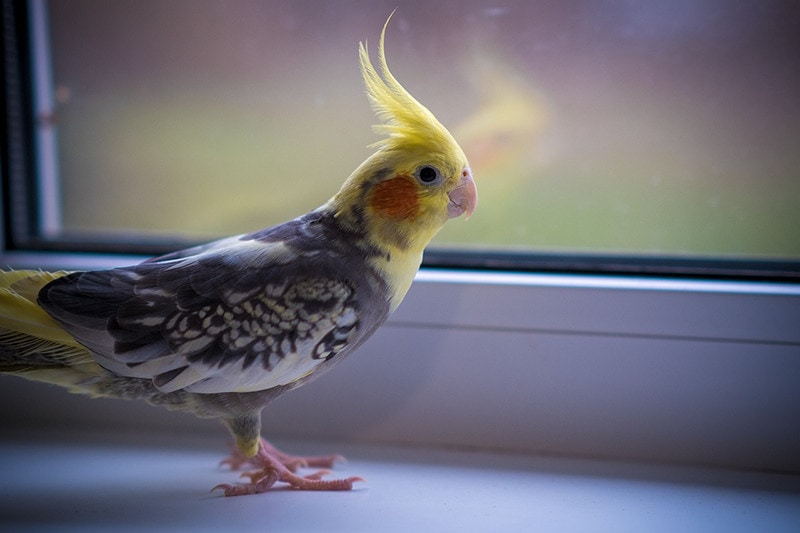10 Vet-Verified Facts About African Grey Parrots
By Adam Mann
Updated on

The African grey parrot (Psittacus erithacus) might not be the most colorful parrot breed in the world, but that doesn’t mean they aren’t interesting, here are facts for you to check out. We’ve highlighted ten of those for you below.
Whether you’re thinking about pet African grey parrots or these birds in the wild, they’re all beautiful and interesting, so just keep reading to learn a bit more.
The 10 Facts About African Grey Parrots
1. They Are a Protected Species
African grey parrots have become such a popular pet that trading, along with destruction of their habitat, has led to them being listed as a protected species. This means they aren’t on the verge of extinction just yet, but they may be if something isn’t done to regulate trading practices. As you can imagine, this has led to some less than ethical trading of African greys. If you are looking into getting one of these birds as a pet, be extra sure of the origins to ensure that they are captive bred and not trafficked from the wild.
2. They Are Very Social
In the wild, African grey parrots interact with many other African grey parrots, and they live in large broods where they can interact with both young and old birds. Not only do they spend time near other parrots, but they also spend time vocalizing with them.
The African grey parrot prefers to be a part of a larger brood, and as a pet without any additional birds around, an owner might have a hard time meeting the parrot’s social needs.

3. They Can Be Territorial
African grey parrots can get very protective of their space, food, and toys. While you can mitigate this with plenty of attention and time for them to exercise and for mental stimulation, it’s not always easy to do, and once they get a bit territorial, it can be challenging to correct.
4. There Is More Than One Type
While most African grey parrots look alike, there are two distinct types. The most common African grey parrot is actually the Congo African grey, and the second most common is the Timneh African grey. The Congo African grey parrot tends to be a bit larger and is a slightly different feather color pattern.
5. They Are Very Smart
The African grey parrot is an incredibly smart bird with brain development that’s comparable to a human child between 3 and 6 years old. They can learn up to 1,000 words and recognize shapes and colors, as well as understand numbers.

6. They Can Talk
Some parrots are better talkers than others, and the African grey parrot is pretty good at mimicking sounds. You can get them to respond to questions, and they’ll pick up sounds from their environment, often mimicking various things from television shows.
7. They’re Hard to Care For
While the African grey parrot can be an interesting pet, they’re among the most challenging to care for. There are various reasons for this, and if you’re thinking about adopting one, you need to be able to dedicate lots of time and energy to them.
They’re incredibly social creatures and need to spend a good chunk of time with you. They’re super smart and need loads of mental stimulation, and they’re very active birds that need to have plenty of time to stretch their wings. It’s a lot to keep up with, so ensure you know exactly what you’re signing up for before you get one.
8. They Are Very Active
These are active birds, and need 2-3 hours of exercise time every single day! If you’re keeping one as a pet, that’s a lot of energy you’ll need to find a way to help them burn.
You don’t always need an aviary, but you will need to find plenty of time to keep them out of their enclosure to help them burn off all the energy they have!

9. They Have Long Lifespans
If you’re thinking about bringing an African grey parrot home, ensure you know exactly what you’re signing up for, including who will care for them after you’re gone. That’s because they can live up to 80 years, so there’s a possibility they live longer than you!
10. They’re Monogamous
In the wild, the African grey parrot will only take on one partner, living a completely monogamous life after this. Both parents play an active role in raising their young, and they can be a bit altruistic towards each other. They’re loving birds, and in the wild, they will find one partner to share all this love with.
Conclusion
Now that you know a little more about the African grey parrot, you can understand why so many people are obsessed with these amazing birds! They might not be as colorful as the Macaw, but that doesn’t make them any less interesting.
In fact, many people prefer the African grey parrot, and after checking out all the interesting facts on our list, we’re sure you can see why!
Featured Image Credit: Deanne Scanlan, Pexels













